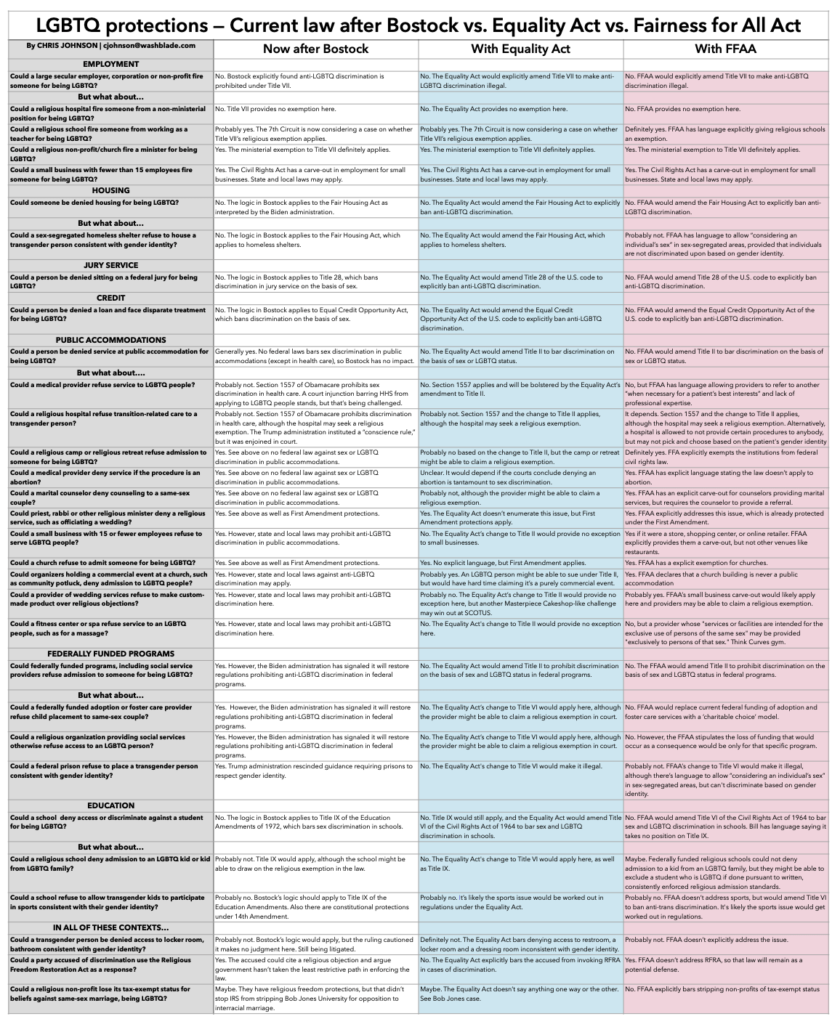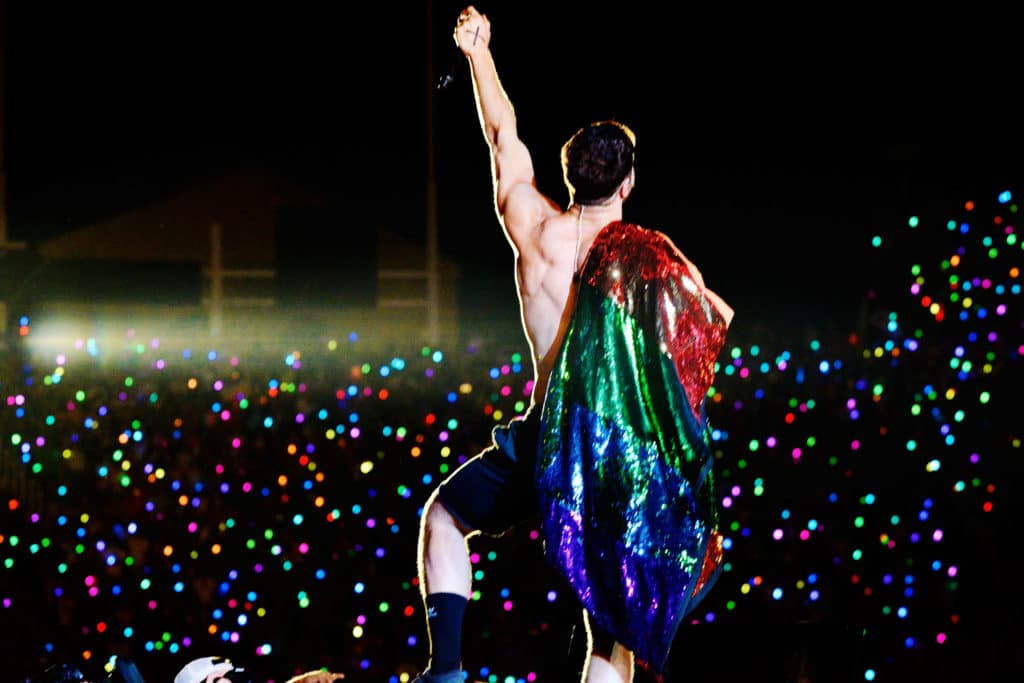World Book Day: 14 LGBT+ inclusive books that every child and young adult deserves to read
Today (4 March) marks the World Book Day 2021 celebration.
The day aims to promote reading to children across the globe as well as offering every young person the opportunity to have a book of their own.ADVERTISING
Both World Book Day and schools will be promoting and recommending different books for children to read in celebration of the day.
So with this in mind we’ve decided to join in and recommend a handful of LGBT+ inclusive books that can be enjoyed by kids and young adults.
From picture books, to fairy tales and titles that aim to educate both adults and children about gender identity, there’s loads of great ones out there.
Below you can find 14 LGBT+ books that every child deserves to read and how to get them.
1. And Tango Makes Three

And Tango Makes Three is based on a heartwarming true story which follows two penguins named Roy and Silo. They live in the penguin house at Central Park Zoo, and although they’re a little different from the others their desire for a family is the same. With the help of a kindly zookeeper they get the chance to welcome a baby penguin of their very own.
After its release in 2005 it became one of the first LGBT+ inclusive books in the mainstream market and has since become a classic read.
The book is available on hardback or Kindle edition from Amazon here.
2. The Bravest Knight Who Ever Lived

Coffee Tastes Stale When It Sits on the Shelf…..
Don’t even talk to me until I’ve had my coffee! When I first heard about the Keurig…

It might be a while before the likes of Disney ever decide to do an alternate version to the dragon-slaying, princess-saving knight story so until then you can get books like The Bravest Knight Who Ever Lived.
The story follows Cedric on his journey from a humble pumpkin farm to the adventures that lead him to become a fully fledged knight. Using his cleverness and courage to vanquish a fire-breathing dragon he rescues a beautiful prince and princess only to discover his most difficult challenge yet. Will Cedric follow his heart and prove that sometimes the bravest thing a person can do is choose for yourself how your fairy tale ends…
The LGBT+ fairy tale is available on hardback or Kindle edition from Amazon here.
3. Prince & Knight

Another modern fairy tale for all ages is Prince & Knight. The story is the usual setting: Once upon a time, in a kingdom far far away there’s a prince in line for the throne who needs to find a bride. However when the prince and his parents travel to find a princess, he doesn’t quite find what he’s looking for.
When their kingdom is under threat from a dragon and the prince returns to save the land from the beast he’s met by a brave knight in a suit of shining armour. Together they slay the dragon and the prince discovers that special something he had been looking for all this time. OK we’re going to need the animated adaption of this…
The book is available on hardback or paperback from Amazon here.
4. Morris Micklewhite and the Tangerine Dress

Clothing is an important aspect for many LGBT+ people as a way to express themselves in ways that words sometimes don’t work. This story, Morris Micklewhite and the Tangerine Dress highlights that as it follows Morris, a little boy who enjoys bright orange dress to school until he is bullied for it.
The book is inspired by a four-year-old boy the author, Christine Baldacchino, knew while she was working as a nursery teacher. After the boy’s mother saw him wearing a dress and complained to the school, she decided to write this book which is a triumphant tale about non-conformity and acceptance alongside bright and colourful illustrations for children to enjoy.
It’s available from Amazon here.
5. Annie’s Plaid Shirt

Another story that focuses on clothing is Annie’s Plaid Shirt. It focuses on Annie who loves her plaid shirt and wears it everywhere. But one day her mother tells her that she has to wear a dress to her uncle’s wedding, and despite Annie’s protests her mother insists on buying her a fancy new dress. After feeling miserable and weird in dresses Annie has an idea that she hopes her mother will understand and agree to in a story of being true to yourself, gender norms and identity as well as tolerance and self-esteem.
The book is available on hardback from Amazon here.
6. Julián Is A Mermaid

Julián Is A Mermaid is the celebratory story of Julián who, after noticing three women dressed up spectacularly on the subway, wants to emulate their fabulousness. The women’s hair billow in brilliant hues, their dresses end in fishtails and their joy fills the train carriage.
Julián can’t stop daydreaming about the magic he saw on the subway and wants to make his own fabulous mermaid costume, but while he does he’s also worrying about what his Nana might make of his outfit…
The feel-good book is available on paperback, hardback and Kindle from Amazon here.
7. It Feels Good to Be Yourself
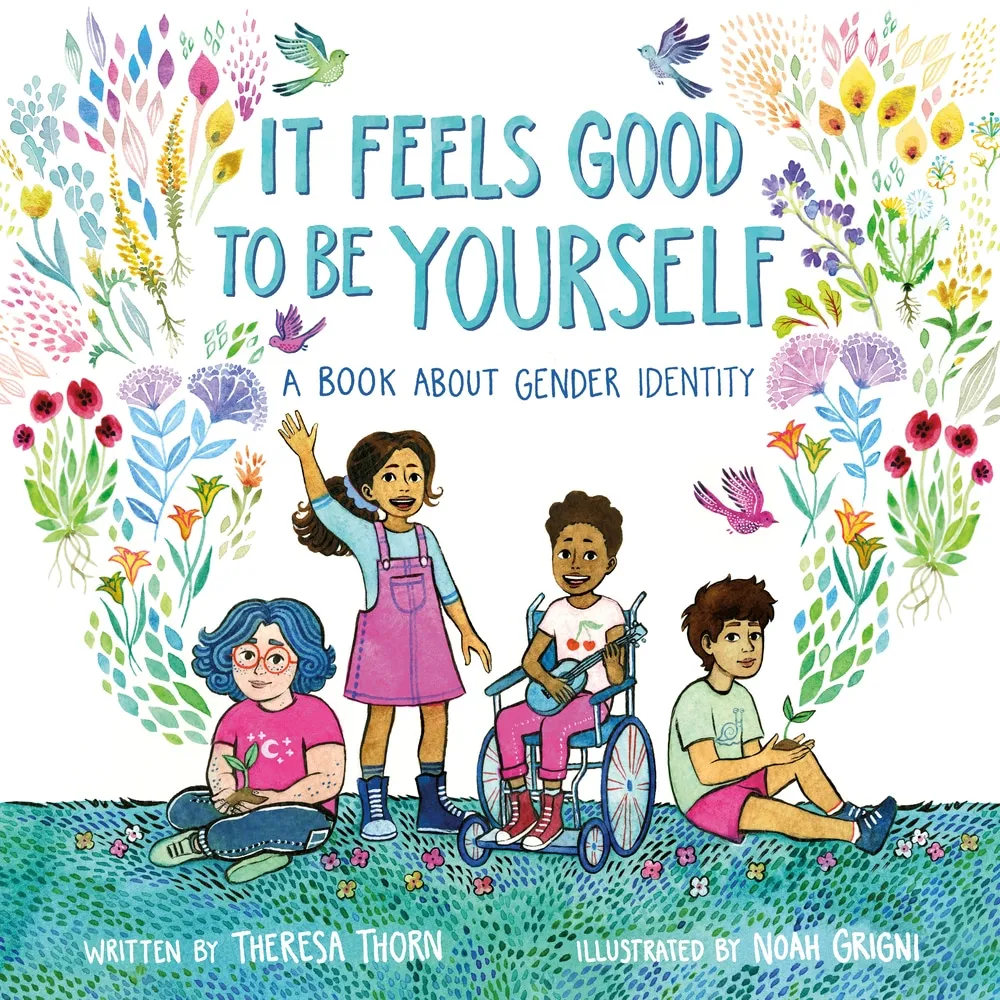
It Feels Good to Be Yourself: A Book About Gender Identity is less of a story book and more informational. The book aims to teach children about all forms of gender in a straightforward way, helping them with a fuller understanding of themselves and others. It provides young readers and parents alike with the vocabulary to discuss important topics with sensitivity and it’s been by the mother of a transgender child and illustrated beautifully by a non-binarytransgender artist.
You can it on hardback or Kindle from Amazon here.
8. My Footprints
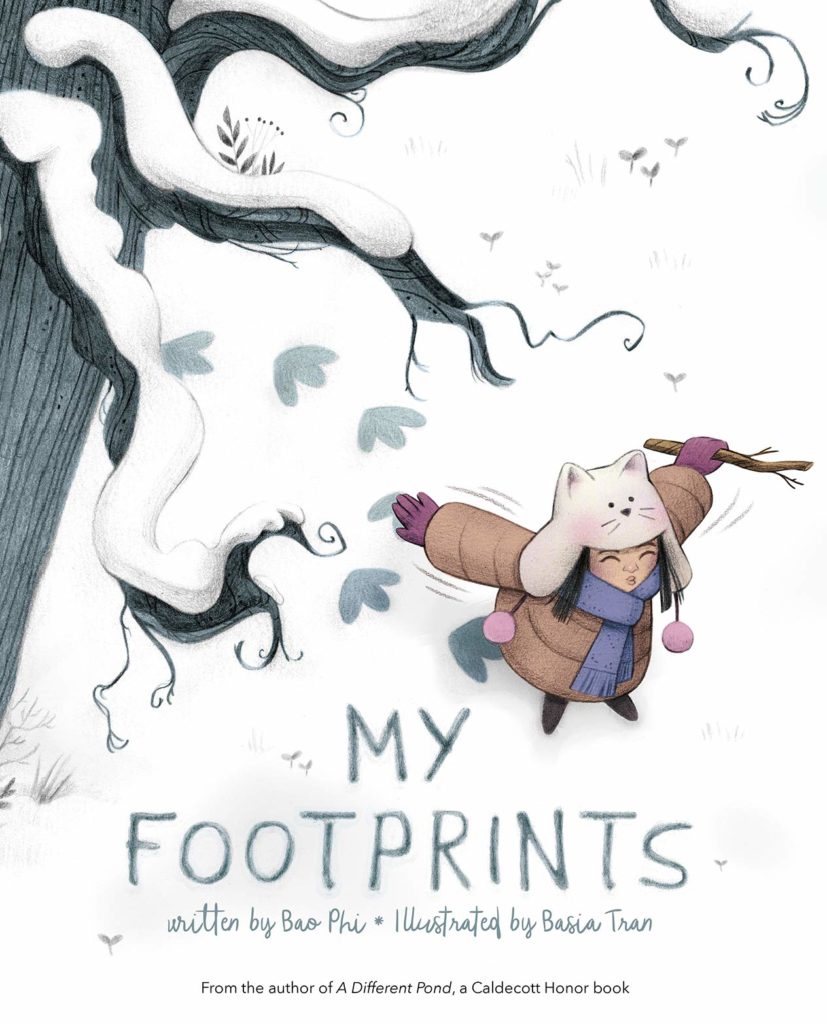
My Footprints follows Thuy who feels ‘doubly different’ to everyone else. She’s Vietnamese-American and has two mums and has to regularly deal with school bullies. Fed up during a walk home in winter a bird catches Thuy’s attention and sets her on an imaginary adventure. She images she could fly like a bird, sprint like a deer and roar like a bear as she continues her walk home which eventually leads her into the arms of her mums who help Thuy find the courage she’s been seeking.
The book is available on paperback from Amazon here.
9. Stella Brings the Family
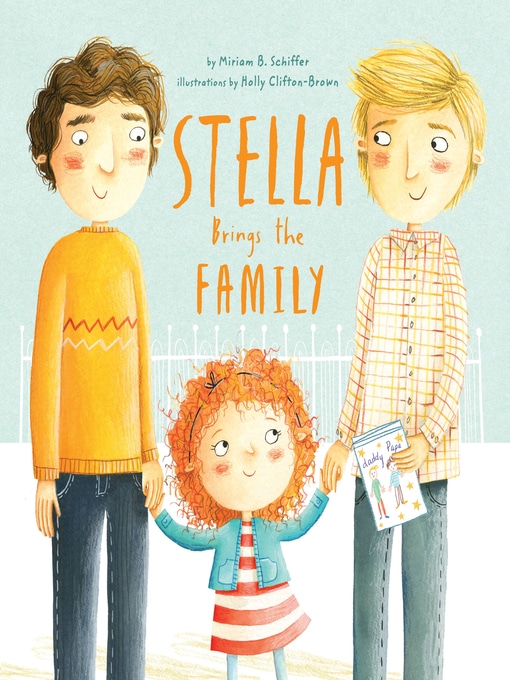
Stella Brings the Family follows the story of a class who’s getting ready to have a Mother’s Day celebration, but Stella has two dads so she isn’t sure what to do. Her Papa and Daddy help her with her with everything from homework to tucking her in at night along with a whole group of other loved ones who make her feel special and supported every day. Although she doesn’t have a mum to invite to the part she finds a unique solution to her problem. The story explores the true meaning of family as well as love and acceptance.
The book is available on hardback or Kindle via Amazon here.
10. Me, My Dad and the End of the Rainbow

Me, My Dad and the End of the Rainbow is a book ideal for more confident young readers. The story follows Archie Albright, who’s life isn’t going great. All he wants is for everything to go back to normal, because three months before his parents were happy and still lived together.
When he sees a colourful, crumpled flyer fall out of his dad’s pocket he thinks he’s found his answer that might lie at the end of the rainbow. He teams up with his best friends Bell and Seb to set off on a journey to try and fix his family, even if he has to break a few rules to do it.
It’s available on paperback or Kindle from Amazon here.
11. The Flower Girl Wore Celery

This cute story follows Emma who’s going to be flower girl for her cousin Hannah’s wedding, and she is very excited. Emma is asked to wear a celery-coloured dress and walk alongside the ring bearer, but she assumes that means she has to wear actual celery and walk alongside a real life bear! On the wedding day nothing turns out to be quite what she was expecting including the fact that her cousin Hannah is marrying a woman.
The book is available on paperback or Kindle from Amazon here.
12. Not Quite Narwhal

This picture book tells the story of a young unicorn who was born under the sea to a family of narwhals. After growing up in the ocean, Kelp has always assumed that he was a narwhal like the rest of his family. One night an extra strong current sweeps Kelp to the surface and he spots a mysterious creature that looks exactly like him, discovering that he and the create are actually unicorns.
This revelation leaves him stuck: is he a land narwhal or a sea unicorn? Or perhaps Kelp can find the best of both worlds. Although its not explicitly an LGBT+ storyline the heartwarming story explores identity, standing out and the love of family.
Not Quite Narwhal is available on hardback, paperback and Kindle from Amazon here.
13. Pink Is For Boys
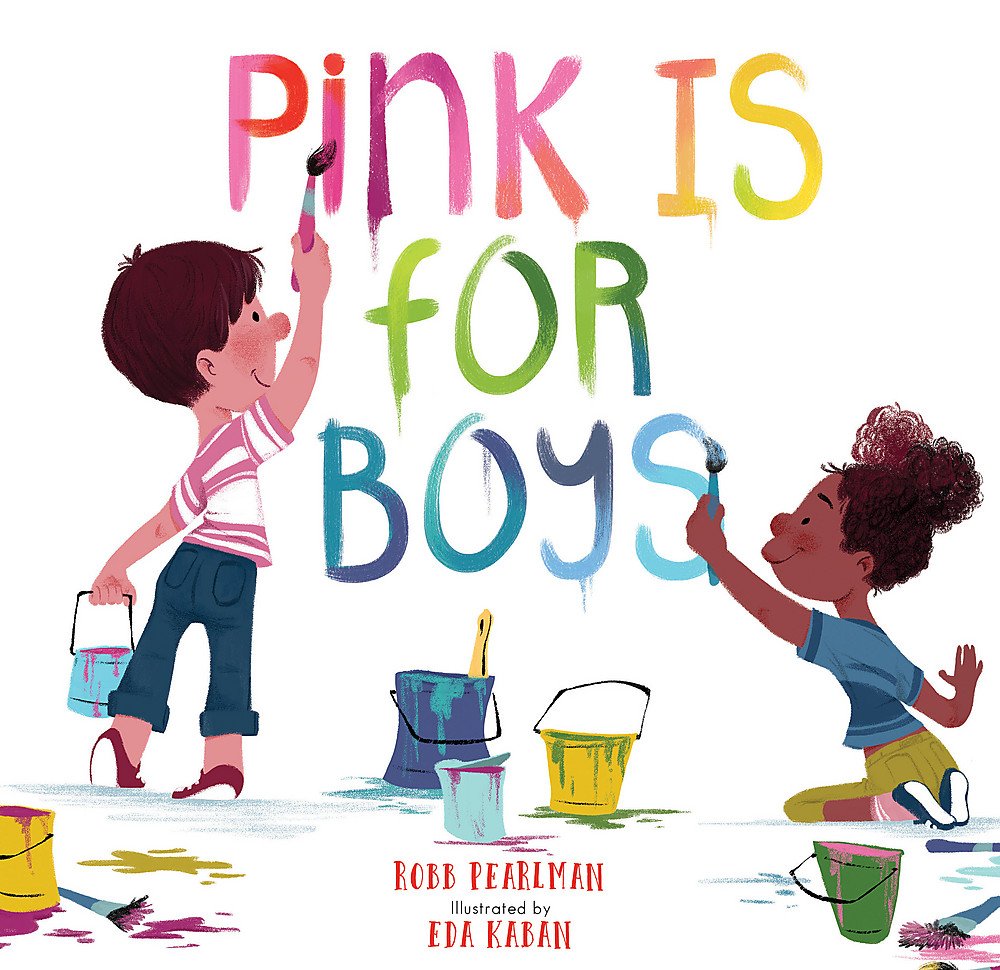
Pink Is For Boys rethinks and reframes the stereotypical blue/pink gender binary that many LGBT+ are familiar with, and empowers both kids and grownups to express themselves in every colour of the rainbow. It features a diverse group of characters and invites everyone to enjoy what they love from racing cars to baseball and unicorns to dressing up. It’s accompanied with vibrant illustrations to help younger readers learn and identify the myriad of colours that surround them every day.
The book is available on hardback from Amazon here.
More from PinkNews
Stars you didn’t know are LGBT+Celebs you didn’t know have an LGBT siblingThe stars who went gay for pay
14. My Shadow Is Pink
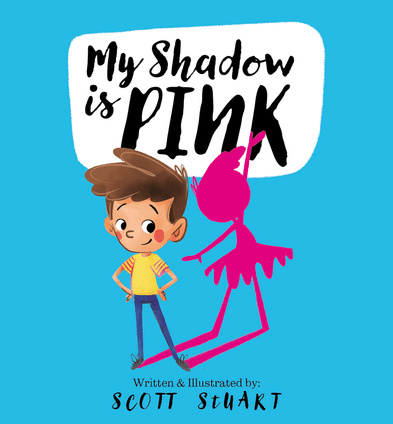
Another book exploring the stereotypes of colour is My Shadow is Pink. It’s inspired by the author, Scott Stuart’s own son and touches on gender identity, equality and diversity. It follows the journey of a young boy who has been born into a family with a long history of blue shadows. The boy wants to be like his father who is big and strong, with a defined blue shadow. However he loves ponies, princesses, fairies and other things ‘not for boys’, so he has an irrepressible pink shadow. With the love and acceptance of his father, he learns that everyone at times, has a shadow they wish was different and he must embrace his shadow just the way it is.
The book is available on hardback, paperback and Kindle from Amazon here.
This article contains affiliate links, PinkNews may earn revenue if you click through and purchase products through the links.


